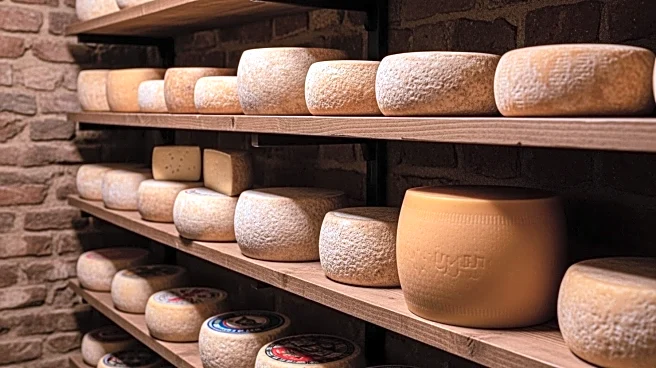What is the story about?
What's Happening?
Cheese producers in Italy and Switzerland are grappling with the effects of tariffs imposed by President Trump on European Union exports to the United States. The tariffs, which were initially set at 30% but later reduced to 15% after negotiations, have affected the export of Parmigiano Reggiano, a popular Italian cheese, to the U.S. market. Producers like Giuseppe Alai in Emilia-Romagna are concerned about the long-term impact on trade, especially with the added challenge of a devalued dollar against the euro. Swiss cheese producers, such as those making Gruyère, face even steeper tariffs of 39%, leading to a significant reduction in orders from U.S. importers.
Why It's Important?
The tariffs have significant implications for the cheese industry, affecting both producers and consumers. For Italian and Swiss cheese makers, the increased tariffs mean higher costs and potential loss of market share in the U.S., their largest export market outside the EU. This could lead to reduced revenue and impact the entire supply chain, from dairy farmers to cheese manufacturers. For U.S. consumers, the tariffs could result in higher prices for imported cheeses, potentially reducing demand. The situation highlights the broader impact of international trade policies on local industries and global markets.
What's Next?
Cheese producers are exploring strategies to mitigate the impact of the tariffs. In Italy, the Parmigiano Reggiano consortium is promoting the brand through sponsorships and educational initiatives in the U.S. Swiss producers are considering reducing production and focusing on other markets. The long-term effects will depend on future trade negotiations and currency fluctuations. Stakeholders in the cheese industry will need to adapt to these changes to maintain their presence in the U.S. market.

















